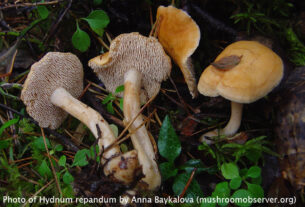Update (September 25th, 2023): Official statement from Daniel Rogers of Microppose
What did one mushroom cultivation supply company say to the other when they saw a similar product in their store?
“There isn’t mush-room in here for the both of us, fungi!”
It would be a joy to say that was simply a joke, but it has come to light that such a sentiment is more common than not. In a world where success is often equated to cutthroat capitalism, the name of the game seems to be competition. Yet if cooperation is ruled out and division is desired, to what ends will one company go to guarantee survival?
One such example that has surfaced is the dispute between Microppose of the USA and Max Yield Bins of Canada. For years, Microppose, headed by Daniel Rogers, has gained traction with the mushroom cultivation community for supplying filter discs to be used on monotubs. Yet it has been proposed that his recent release of custom designed monotubs has gained the attention of Max Yield Bins, who also sells two-piece monotubs for mushroom cultivation. And how did Max Yield Bins seem to respond? By attempting to trademark the name Microppose.

As can be clearly seen on the United States Patent and Trademark Office website and in the above screenshot, the word “microppose” itself has been trademarked by Max Yield Bins Inc. of Canada. If such a measure stands without opposition, it allows the holder of the trademark to control the usage of the wordmark in relation to the listed goods and services.
What does this mean for Microppose?
In this case, it seems likely that Microppose will be able to object to the trademark due to longstanding exclusive use of the wordmark. Yet confusion may arise as Max Yield Bins has apparently added product URLs and SEO descriptions that contain the phrase microppose. Ultimately, the two companies will have to spend time, energy, and legal resources to settle the issue of who has the right to use the word microppose.
How does this reflect on the mushroom industry in general?
In a capitalistic system, it often seems like competition is inevitable. Yet it is possible for companies to compete without cutting each other down by the knees. Innovation and marketing driven to exemplify how one’s product may best serve the target customer can be utilized instead of diminishing the quality or presence of another company’s product. Cooperation can be chosen to allow even more creative products that best serve the needs of the masses. Yet there will certainly be companies that choose more aggressive tactics.
Disputes amongst players in the broad mushroom industry are numerous. Take in point the NAMMEX vs Stamets mushroom labeling disparity over the very use of the word, “mushroom” in the mushroom supplement industry. In an effort to address the perceived ambiguity of labeling on products such as Host Defense Mushroom products, NAMMEX, headed by Jeff Chilton, filed a citizen’s petition to the FDA requesting for myceliated grains to be labelled more specifically. Paul Stamets retaliated by releasing a public letter with his company Fungi Perfecti, the producers of Host Defense Mushrooms. The letter insists that it is in fact the citizen’s petition itself that is bringing confusion to the market. And just like that, the fight is on. Best yet? Jeff Chilton and Paul Stamets co-authored a book together, The Mushroom Cultivator, back in 1983. Forty years pass and a cooperative par can turn to a bickering duo.
So what will the future of the mushroom industry be? Whether in biomaterials, supplements, psychedelics or supplies, we will surely see the damages and successes of allies and enemies. Humans are involved, after all, and humans have a proven penchant for the dramatic.
“It was the best of times, it was the worst of times, it was the age of wisdom, it was the age of foolishness, it was the epoch of belief, it was the epoch of incredulity, it was the season of Light, it was the season of Darkness, it was the spring of hope, it was the winter of despair, we had everything before us, we had nothing before us, we were all going direct to Heaven, we were all going direct the other way”
A Tale of Two Cities by Charles Dickens




